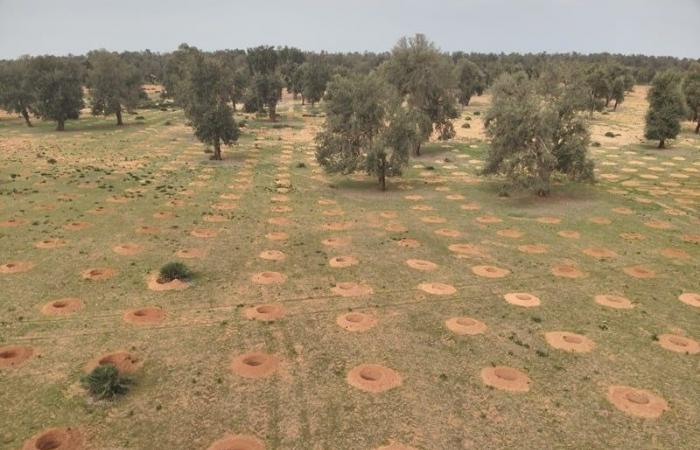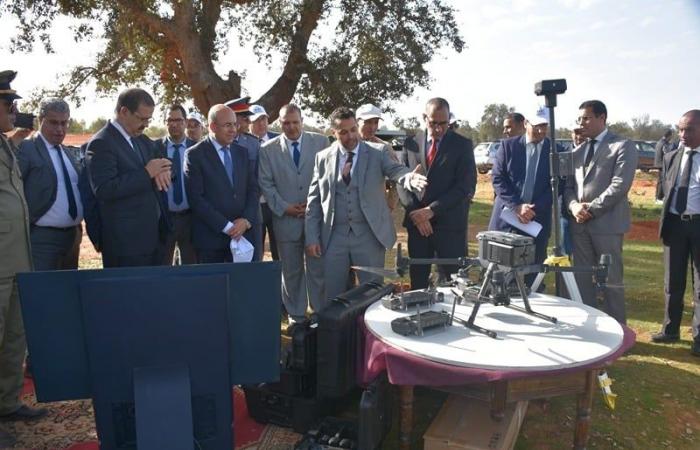As part of the implementation of its national strategy “Forests of Morocco 2020-2030”, the National Agency for Water and Forests (ANEF) is intensifying its efforts to develop, conserve and rehabilitate Moroccan forest ecosystems.
In this sense, a field trip, led by the Director General of ANEF, Abderrahim Houmy, in collaboration with Abdelhamid El Mazid, Governor of the Province of Kenitra, was carried out on Thursday to assess the progress of the programs undertaken in terms of reforestation and sustainable forest management.
During this visit, several sites, exemplifying the efforts deployed on the ground, were inspected. Among these initiatives, the launch of cork oak regeneration work on an area of 200 hectares and maritime pine replanting work on more than 430 hectares, aimed at replacing unsuccessful plants, illustrate a proactive approach to guarantee sustainability. forests. In addition, ANEF integrates drones equipped with advanced technologies to monitor reforestation activities over 190 hectares, thus ensuring precise and efficient management of resources.
The strategy aims to achieve, by 2030, the planting and reconstitution of forests over an area of 600,000 hectares. To date, 150,000 hectares have already been completed, representing 25% of the overall objective. For the 2025-2026 campaign, a forecast program extends to nearly 70,000 hectares, aiming to reach 37% of this strategic target.
Faced with growing climatic challenges, notably drought, ANEF favors the use of native species, the share of which in regeneration programs has considerably increased. Going from 20-25% in recent years to 35% currently, the objective is to reach 60-65% by 2030. This strategy aims to strengthen the resilience of Moroccan forest ecosystems and guarantee their capacity to adapt to to climatic hazards.
ANEF also places emphasis on technological innovation to optimize forest management. The use of drones allows precise monitoring and effective evaluation of reforestation work, guaranteeing transparency and traceability. At the same time, digitalization materialized through the implementation of an integrated spatial software package, facilitating real-time planning and management of reforestation operations. This system significantly reduces planning times and optimizes resource allocation, thereby strengthening operational efficiency and governance.
With a view to social inclusion, ANEF places local communities at the heart of its projects. Through partnerships with organized users such as associations and cooperatives, financial incentives are granted to support populations impacted by restrictions on forest use. Thus, in the Rabat-Salé-Kénitra region, the target program amounts to 50,000 hectares by 2030, with a 2024-2025 action plan covering 7,570 hectares, including 3,810 hectares of regeneration of natural forests and 3,300 hectares of reforestation with adapted species.
For this campaign, a budget of 3.2 million dirhams was allocated to 22 associations representing 2,500 breeders, guaranteeing compliance with the protection of young plantations over an area of 12,900 hectares.







